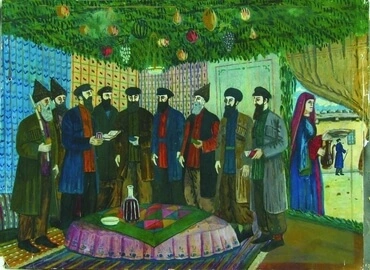Arcana Coelestia # 130
130. The person who wishes to become wise from the world has for his 'garden' sensory evidence and factual knowledge. His 'Eden' is self-love and love of the world, his 'east' is the west or himself. His 'river Euphrates' is all his factual knowledge, which is condemned; his 'second river', where Asshur is, is his insane reasoning from which come falsities; his 'third river', where Cush is, is the resulting assumptions he makes consisting of evil and falsity, which are his cognitions of faith; his 'fourth' is the wisdom that results, which in the Word is called magic. This is why Egypt, which means knowledge, after it has become magical, means this kind of person, the reason being that he wants to become wise from self, as shown throughout the Word. Such people are described in Ezekiel as follows,
Thus said the Lord Jehovah, Behold, I am against you, Pharaoh king of Egypt, the great monster lying in the midst of his rivers, who said, My river is my own, and I have made myself. And the land of Egypt will be made into a desolation and a waste. And they will know that I am Jehovah. Moreover he has said, The river is mine, and I made it. Ezekiel 29:3, 9.
People like this are also called in the same prophet where again Pharaoh or the Egyptian is the subject 'the trees of Eden in hell' as follows,
I will cause him to go down into hell with those going down into the pit. Whom have you become like in glory and in greatness among the trees of Eden? You will be made to go down with the trees of Eden into the nether world, in the midst of the uncircumcised, with those pierced by the sword. This is Pharaoh and all his horde. Ezekiel 31:16, 18.
Here 'trees of Eden' stands for facts and cognitions drawn from the Word which they profane in this manner by means of reasonings.
Keep

Keeping" in the Bible generally concerns the actions of life, though in some cases it can mean holding something away from the activities of life to safeguard it. By far the most common use of "keep" is connected with keeping the Lord's commandments or keeping feast days or rituals. These all mean putting true ideas from the Lord into action in life; simply knowing them or remembering them is not enough. In a deeper sense, it means worshiping the Lord, since living life according to His leading is the ultimate act of worship. When its not possible to act from the Lord's commandments, "keeping" represents remembering and safeguarding those true ideas so that they can be put into practice eventually.






